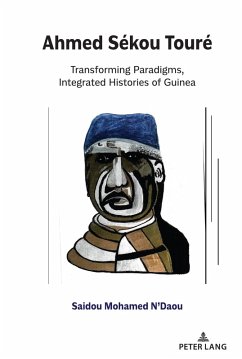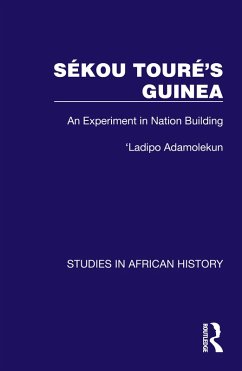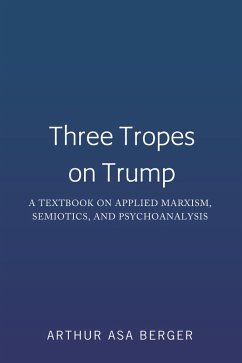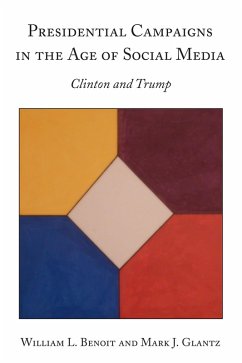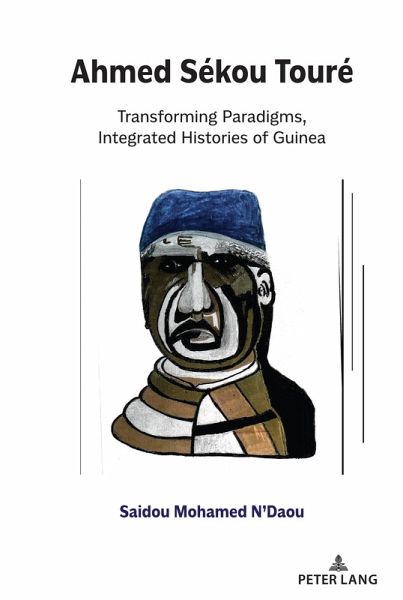
Ahmed Sékou Touré (eBook, PDF)
Transforming Paradigms, Integrated Histories of Guinea
Versandkostenfrei!
Sofort per Download lieferbar
Statt: 99,15 €**
81,95 €
inkl. MwSt.
**Preis der gedruckten Ausgabe (Gebundenes Buch)
Alle Infos zum eBook verschenkenWeitere Ausgaben:

PAYBACK Punkte
41 °P sammeln!
This book is different from existing works on Ahmed Sékou Touré and the Guinean Democratic Party (PDG) and their struggle for national independence. Its uniqueness stems from the fact that all the chapters focus on the Guinean traditions of struggle over memories between the elites and the subordinates, highlighting the independent initiatives of the latter. Other books on Ahmed Sékou Touré are primarily based on their writers' political or social history perspectives. This is the first study that equally integrates political and social history to address the theoretical and methodological...
This book is different from existing works on Ahmed Sékou Touré and the Guinean Democratic Party (PDG) and their struggle for national independence. Its uniqueness stems from the fact that all the chapters focus on the Guinean traditions of struggle over memories between the elites and the subordinates, highlighting the independent initiatives of the latter. Other books on Ahmed Sékou Touré are primarily based on their writers' political or social history perspectives. This is the first study that equally integrates political and social history to address the theoretical and methodological issues of identity and construction of identity as necessary for understanding the roles of the elites and the subordinates in their struggles for access to power and resources in colonial and postcolonial Guinea. In this book, Saidou Mohamed N'Daou provides equal space for the initiatives and interests of the elites and the subordinates. Ahmed Sékou Touré used the ideology of the PDG as a mirror reflection of the social changes that he and his party intended to create. N'Daou argues that one must displace the ideology of the PDG from the center to understand Ahmed Sékou Touré's personality, his role in Guinea's independence and his leadership of the PDG as well as expand the analytical space to allow other voices to be heard. N'Daou reaches this goal by discovering Ahmed Sékou Touré's first order of knowledge, another unique feature of this book.
Dieser Download kann aus rechtlichen Gründen nur mit Rechnungsadresse in A, D ausgeliefert werden.




